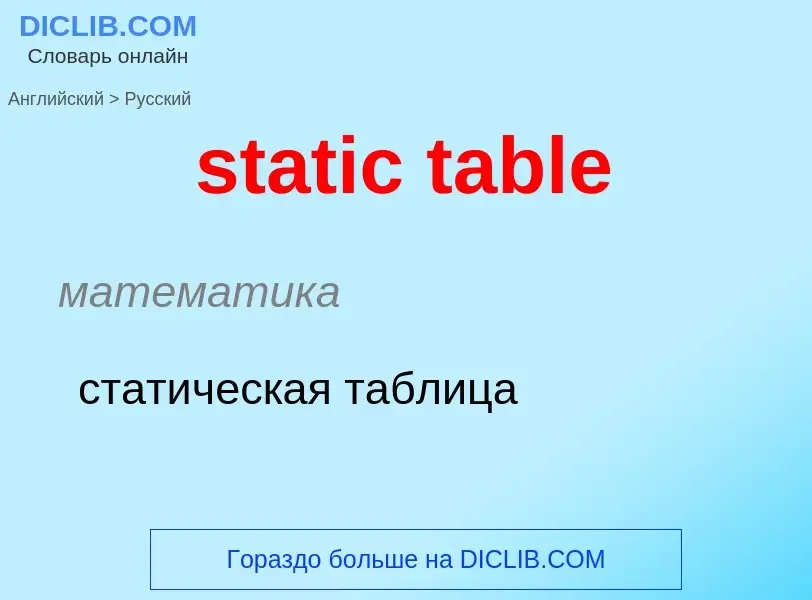Μετάφραση και ανάλυση λέξεων από την τεχνητή νοημοσύνη ChatGPT
Σε αυτήν τη σελίδα μπορείτε να λάβετε μια λεπτομερή ανάλυση μιας λέξης ή μιας φράσης, η οποία δημιουργήθηκε χρησιμοποιώντας το ChatGPT, την καλύτερη τεχνολογία τεχνητής νοημοσύνης μέχρι σήμερα:
- πώς χρησιμοποιείται η λέξη
- συχνότητα χρήσης
- χρησιμοποιείται πιο συχνά στον προφορικό ή γραπτό λόγο
- επιλογές μετάφρασης λέξεων
- παραδείγματα χρήσης (πολλές φράσεις με μετάφραση)
- ετυμολογία
static table - translation to ρωσικά
математика
статическая таблица
строительное дело
статический расчёт
Ορισμός
Βικιπαίδεια
An evaluation function, also known as a heuristic evaluation function or static evaluation function, is a function used by game-playing computer programs to estimate the value or goodness of a position (usually at a leaf or terminal node) in a game tree. Most of the time, the value is either a real number or a quantized integer, often in nths of the value of a playing piece such as a stone in go or a pawn in chess, where n may be tenths, hundredths or other convenient fraction, but sometimes, the value is an array of three values in the unit interval, representing the win, draw, and loss percentages of the position.
There do not exist analytical or theoretical models for evaluation functions for unsolved games, nor are such functions entirely ad-hoc. The composition of evaluation functions is determined empirically by inserting a candidate function into an automaton and evaluating its subsequent performance. A significant body of evidence now exists for several games like chess, shogi and go as to the general composition of evaluation functions for them.
Games in which game playing computer programs employ evaluation functions include chess, go, shogi (Japanese chess), othello, hex, backgammon, and checkers. In addition, with the advent of programs such as MuZero, computer programs also use evaluation functions to play video games, such as those from the Atari 2600. Some games like tic-tac-toe are strongly solved, and do not require search or evaluation because a discrete solution tree is available.

